#c: aaron thomas
Explore tagged Tumblr posts
Text
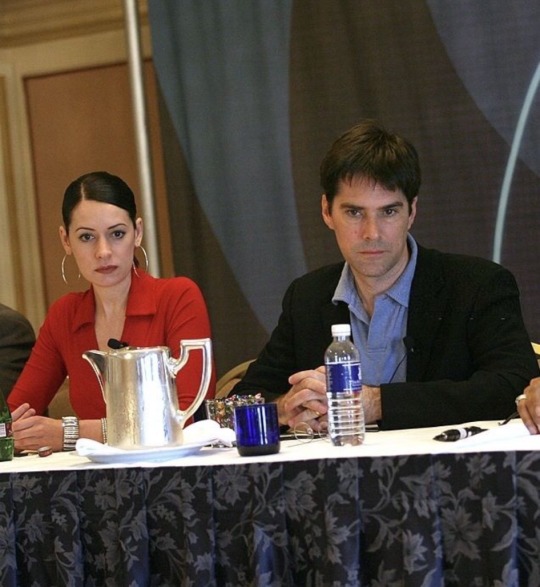
I was scrolling Pinterest last night and stumbled across these two serving absolutely lethal face cards
#why is this so c*nty oh my god#face card is insane#they look like actual babies in this omg#paget brewster#thomas gibson#emily prentiss#aaron hotchner#criminal minds
2K notes
·
View notes
Text
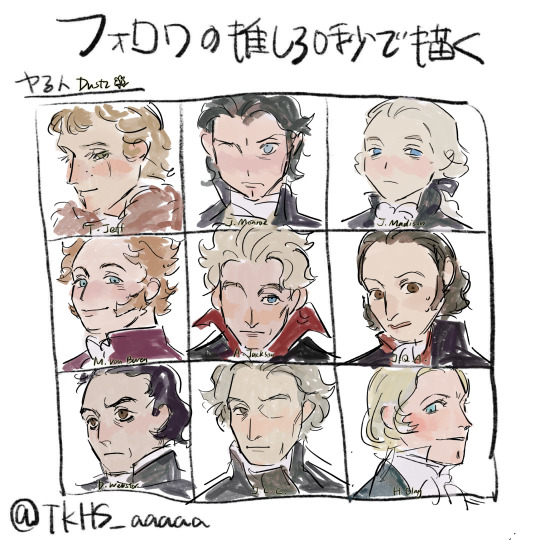
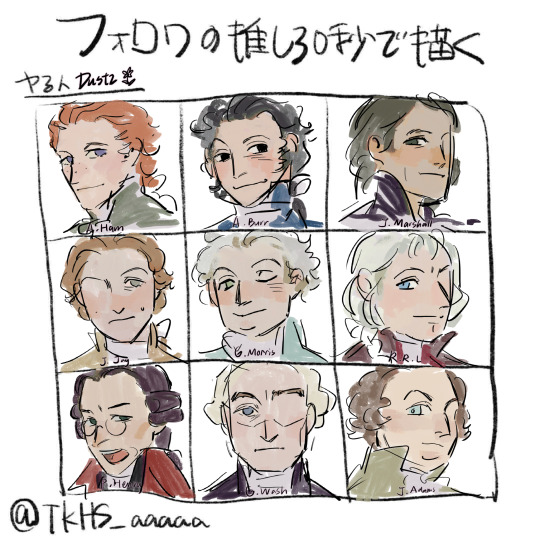
Too many old stuffs lol dk which to post everyday
tagging these names makes me sick
#amrev#amrev fandom#thomas jefferson#james monroe#james madison#martin van buren#andrew jackson#john quincy adams#daniel webster#john c. calhoun#henry clay#alexander hamilton#aaron burr#john marshall#john jay#gouverneur morris#robert r. Livingston#patrick henry#george washington#john adams
177 notes
·
View notes
Text

Sourced from the 5 December 1800 issue of the Gazette of the United States; page 3 - accessed via Chronicling America.
#daily#daily history#history#old news#old newspapers#old shit#vintage newspapers#1800 presidential election#presidential election#election results#us elections#thomas jefferson#aaron burr#john adams#charles c. pinckney#1800s
2 notes
·
View notes
Text
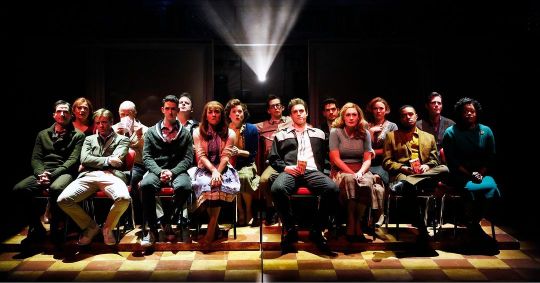
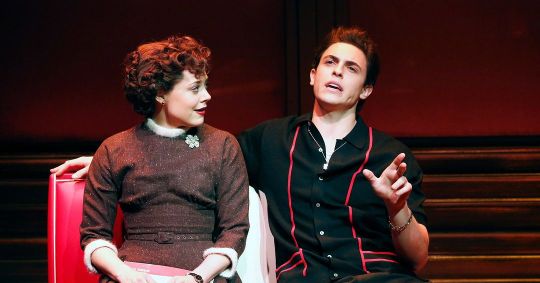
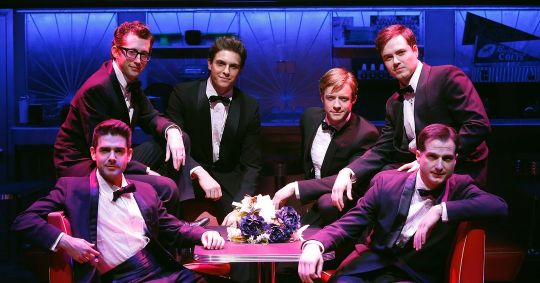
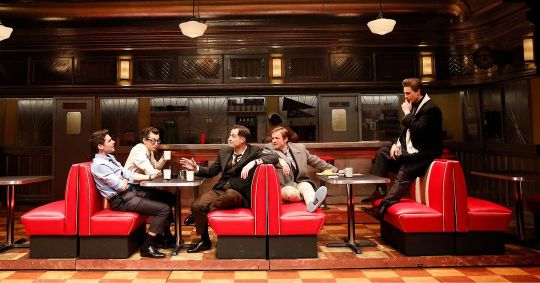
#derek klena#broadway#adam kantor#aaron c finley#josh gristetti#diner#bryan fenkart#diner the musical#matthew j thomas#erika henningsen#jacqueline b arnold#signature theatre#instagram#photos
6 notes
·
View notes
Text
Seeking a book to read this winter break?
Brand "New" List of Additions to the Arthurian Preservation Project Archive
In time, all books will be added to my Retellings List or Medieval Literature List respectively, and possibly a third page for handbooks/informational resources. Retellings may be under construction for a bit as I reformat to accommodate the influx in links. There are some duplicates—Alan Lupack's and Mike Ashley's anthologies occasionally contain a one-off story I've otherwise included in an individual volume of collected works by the author.
Links connect to corresponding PDFs on my Google drive where they can be read and downloaded for free. But if you like what I do, consider supporting me on Ko-Fi. I haven't yet read these listings in full; I cannot attest to their content or quality. A big thank you to @wandrenowle for the help collecting!
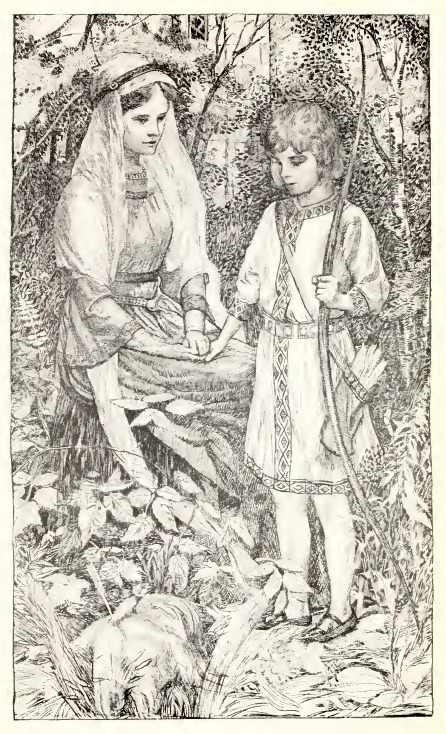
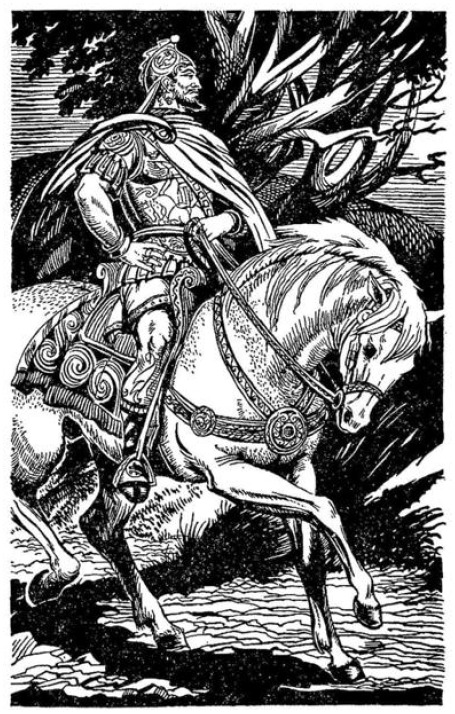
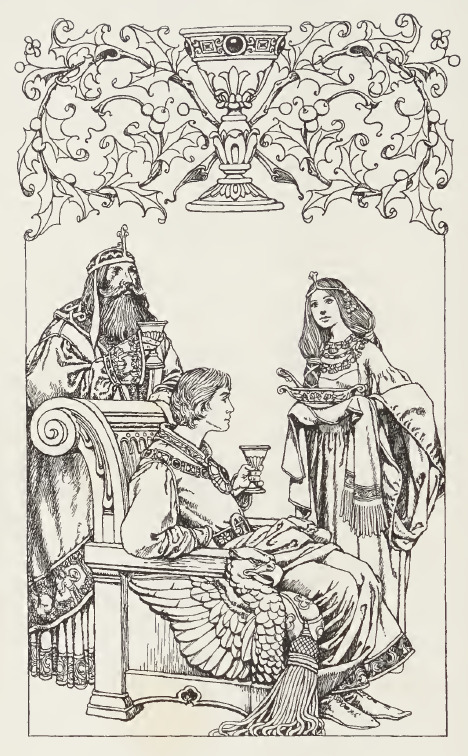
Modern Retellings
Merlin in Love by Aaron Hill (1790) — Opera about Merlin & his love interest Columbine.
The Fortunate Island by Max Adeler (1882) — A family shipwrecks on an island only to discover its populated with Arthurian knights, including Dinadan, Bleoberis, & Agravaine.
Sir Marrok by Allen French (1902) — Werewolf knight.
The Story of Sir Galahad by Mary Blackwell Stirling (1908) — Illustrated retelling of Malory's Grail Quest.
The Story of Parzival by Mary Blackwell Stirling (1911) — Illustrated retelling of Eschenbach's Parzival.
Stories From King Arthur and His Round Table by Beatrice Clay (1913) — Illustrated retelling of Malory.
Cloud Castle and Other Papers by Edward Thomas (1922) — Contains two Arthurian entries: the story Bronwen The Welsh Idyll about Agravaine & his lady Bronwen, & the essay Isoud about the Prose Tristan.
Collected Poems by Rolfe Humphries (1924-1966) — Contains Dream of Rhonabwy about Owain & Arthur's chess game, A Brecon Version about Essylt/Trystan, Under Craig y Ddynas about Arthur's "sleeping" warriors, & The Return of Peredwr about the Grail Hero's arrival to court.
Peronnik the Fool by George Moore (1926) — The quest for the Holy Grail based on Breton folklore.
The Merriest Knight by Theodore Goodridge Roberts (1946-2001) — Anthology of short stories all about Dinadan.
The Eagles Have Flown by Henry Treece (1954) — A third Arthurian novel from Treece detailing the rivalry between Artos & Medrawt, with illustrations this time.
Launcelot, my Brother by Dorothy James Roberts (1954) — The fall of Camelot from Bors perspective, as a brother of Launcelot.
To the Chapel Perilous by Naomi Mitchison (1955) — Two rival journalists report about the goings on in Camelot.
The Pagan King by Edison Marshall (1959) — Historical fiction from the perspective of Pagan King Arthur.
Kinsmen of the Grail by Dorothy James Roberts (1963) — The Grail Quest but Gawain is Perceval's step dad.
Stories of King Arthur by Blanche Winder (1968) — Illustrated retelling of Malory.
Drustan the Wanderer by Anna Taylor (1971) — Retelling of Essylt/Drustan.
Merlin's Ring by H. Warner Munn (1974) Gwalchmai is a godson of Merlin's that uses his ring to travel through the magical & real worlds.
Lionors, Arthur's Uncrowned Queen by Barbara Ferry Johnson (1975) — Story of Arthur's sweetheart & mother of his son, Loholt.
Gawain and The Green Knight by Y. R. Ponsor (1979) — Illustrated prose retelling of SGATGK poem.
Firelord (#1), Beloved Exile (#2), The Lovers: Trystan and Yseult (#3) by Parke Godwin (pseudonym Kate Hawks) (1980-1999) — Book 1 Arthur, book 2 Guinevere, book 3 Trystan/Yseult.
Bride of the Spear by Kathleen Herbert (1982) — "Historical" romance retelling of Teneu/Owain.
Invitation to Camelot edited by Parke Godwin (1988) — Anthology of assorted Arthurian stories from authors like Phyllis Ann Karr & Sharan Newman.
Arthur, The Greatest King - An Anthology of Modern Arthurian Poems by Alan Lupack (1988) — Anthology of modern Arthurian poetry by various authors including E. A. Robinson, William Morris, C. S. Lewis, & Ralph Waldo Emerson.
The White Raven by Diana L Paxson (1988) — "Historical" romance retelling of Drustan/Esseilte.
Merlin Dreams by Peter Dickinson (1988) — Illustrated by Alan Lee.
The Pendragon Chronicles edited by Mike Ashley (1990) — An anthology of Arthurian stories, including some translations such as the Lady of the Fountain, and retellings by John Steinbeck & Phyllis Ann Karr.
Grails: Quest of the Dawn edited by Richard Gilliam (1992-1994) — Anthology of Grail Quest stories.
The Merlin Chronicles edited by Mike Ashley (1995) — Anthology about Merlin from authors like Theodore Goodridge Roberts & Phyllis Ann Karr.
The Chronicles of the Holy Grail edited by Mike Ashley (1996) — Anthology about the Holy Grail from authors like Cherith Baldry & Phyllis Ann Karr.
The Chronicles of the Round Table edited by Mike Ashley (1997) — Anthology of assorted Arthurian stories from authors like Cherith Baldry & Phyllis Ann Karr.
Sleepless Knights by Mark H Williams (2013) — 1,500 years have passed but Lucan the Butler’s still on the clock.
Medieval Literature
Three Arthurian Romances (Caradoc, The Knight with The Sword, The Perilous Graveyard) [This is on the Internet Archive & cannot be downloaded. If someone could help with that, lmk!] translated by Ross G. Arthur
Le Bel Inconnu (The Fair Unknown) translated by Colleen P. Donagher
Segurant The Knight of the Dragon (Portuguese) edited by Emanuele Arioli
An Anglo-Norman Reader by Jane Bliss
Stanzaic Morte Arthur / Alliterative Morte Arthure edited by Larry D. Benson
Sir Perceval de Galles / Ywain and Gawain edited by Mary Flowers Braswell
Sir Gawain: Eleven Romances and Tales edited by Thomas Hahn
Prose Merlin edited by John Conlee
The Middle English Breton Lays edited by Eve Sailsbury & Anne Laskaya
Il Ciclo Di Guiron Le Courtois Volumes 1-7 (Italian)
Wace's Roman de Brut / Layamon's Brut by Robert Wace & Eugene Mason
Arthurian Literature by Women edited by Alan Lupack & Barbara Tepa Lupack
Handbooks
Studies in the Fairy Mythology of Arthurian Romance by Lucy Allen Paton (1960)
A Companion to the Gawain-Poet edited by Derek Brewer (1990)
The Mammoth Book of King Arthur edited by Mike Ashley (2005)
A Bibliography of Modern Arthuriana 1500-2000 by Ann F. Howey & Stephen R. Reimer (2006)
#arthurian preservation project#arthuriana#arthurian mythology#welsh mythology#arthurian legend#arthurian literature#king arthur#queen guinevere#sir gawain#sir lancelot#sir percival#sir perceval#sir mordred#sir galahad#sir owain#sir yvain#sir kay#sir bedivere#sir bedwyr#merlin#sir tristan#queen isolde#sir marrok#sir lucan#lionors#sir loholt#sir bors#sir agravain#sir agravaine#my post
144 notes
·
View notes
Text
An extensive list of the sources I have found on Internet Archive
Last updated 6/8/25
It would be quite selfish of me to keep these to myself, wouldn't it? This list will be updated frequently, in accordance to what I have found. These were found while doing my own research for various topics, and taken from the bibliographies of many books. Some of these I will have cited in posts of mine, many others will not appear anywhere in my work. Mostly primary sources, but quite a few books make their appearance.
Sorted alphabetically by surname of author
*Some sources, for the sake of readability, have their title somewhat shortened and/or authors removed. In this case, the sourced author will be chosen according to reverse alphabetization, as this is how they are listed on the Archive
A
Alden, John Richard. General Gage in America: Being Principally a History of his Role in the American Revolution
Anburey, Thomas. With Burgoyne to Quebec; An Account of the Life at Quebec and of the Famous Battle at Saratoga
Atwood, Rodney. The Hessians: Mercenaries From Hessen-Kassel in the American Revolution
B
Balderston, Marion and Syrett, David. The Lost War: Letters From British Officers During the American Revolution
Bass, Robert D. The Green Dragoon
Burr, Aaron. Memoirs of
C
Clinton, George. Public Papers of Volume 1 Volume 2 Volume 3 Volume 4 Volume 5 Volume 6 Volume 7 Volume 8 Volume 9 Volume 10
Clinton, Henry. Observations on Some Parts of the Answer of Earl Cornwallis to Sir Henry Clinton's Narrative Clinton, Henry. The American Rebellion; Sir Henry Clinton's Narrative of His Campaigns, 1775-1782
Commanger, Henry Steele. Spirit of '76: The Story of The American Revolution as Told by Participants
E
Ewald, Johann von. Diary of the American War: A Hessian Journal
G
Grant, Alfred. Our American Brethren: A History of Letters in the British Press During the American Revolution, 1775-1781
H
Hamilton, Alexander. Papers of Volume 5 Volume 8 Volume 9 Volume 10 Volume 12 Volume 13 Volume 15 Volume 16 Volume 18 Volume 19 Volume 22
K
Kapp, Friedrich. The Life of Frederick William von Steuben
Kemble, Stephen. Journal of
L
Laurens, Henry. Papers of Volume 1 Volume 2 Volume 3 Volume 4 Volume 7 Volume 8 Volume 11 Volume 12 Volume 13
Lefkowitz, Arthur S. George Washington's Indispensable Men
M
Massey, Gregory D. John Laurens and The American Revolution
Moultrie, William. Memoirs of
Murdoch, David H. Rebellion in America: A Contemporary British Viewpoint, 1765-1783
P
Parton, James. The Life and Times of Aaron Burr
R
Ramsay, David. The History of The Revolution of South Carolina
Robson, Eric. Letters From America, 1773 to 1780, Being the Letters of a Scots Officer, Sir James Murray, to his Home During the War of American Independence
S
Steiner, Bernard Christian. The Life and Correspondence of James McHenry
Stevens, Benjamin Franklin. The Campaign of Virginia, 1781: An Exact Reprint of Six rare Pamphlets on the Clinton-Cornwallis Controversy
T
Tarleton, Banastre. A History of The Campaigns of 1780 and 1781, in The Southern Provinces of North America
V
Van Doren, Carl. Secret History of the American Revolution: An Account of the Conspiracies of Benedict Arnold and Numerous Others
W
Ward, Christopher. The War of The Revolution
Washington, George. Papers of Agricultural papers
#writings#amrev#american revolution#alexander hamilton#john laurens#henry laurens#george washington#william moultrie#david ramsay#george clinton#baron von steuben#how many volumes does alexander have? dont worry about it#aaron burr#resources#banastre tarleton#james mchenry#thomas gage#john burgoyne#henry clinton#sir henry clinton#charles cornwallis#benedict arnold#hessian#hessians
119 notes
·
View notes
Text
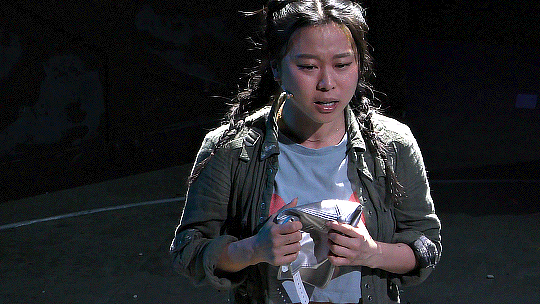
MARCH 10, 2025 RELEASE
All my videos can be found here, full release under the read more!
ORDER FORM HERE
This release includes: The Lightning Thief, Curious Case of Benjamin Button, Starlight Express, Hadestown (new cast), Harry Potter and the Cursed Child (cast change)
THE CURIOUS CASE OF BENJAMIN BUTTON February 25, 2025 (M) | West End | 4K MP4 (9.52GB) | bikinibottomday’s master Cast: Benedict Salter (u/s Benjamin Button/u/s Reverthi), Clare Foster (Elowen Keene/The Sheep/Sterenow), Jonathan Charles (u/s Roger Button/Trenlee Senior/Growan), Philippa Hogg (Mary Button/Millie Dyer/Psychiatrist/Avoryow), Matthew Burns (Mrs Gladstone/Landlord/Electrotherapist/Morlan), Emily Panes (s/w Captain Carrick/s/w Tewes), Katy Ellis (u/s Mr Gladstone/u/s Landlady/u/s Lowen Button/u/s Ebron), Anna Fordham (Mrs Bennett/Locryn Button/Keynvor), Damien James (Mrs Gladstone's Sister/Jago Trenlee/Billy Tyne/Meryn Gladstone/Tir), Ann Marcuson (Miss Moncrief/Morwenna Keene/Drunken Sailor/Doctor/Maggie Moncrief/Treth), Jack Quarton (Mr Bennett/Jack Trenlee/Tonnow) Notes: Excellent 4K capture of this amazing musical! Increased wandering and unfocusing throughout. Two tracks were cut from the show, making this a very unique cast combination. Elliot Mackenzie's (Lanow) and Katy Ellis's (Gwyns) narration lines were covered by various company members. Includes curtain call, audio fed from external source. https://flic.kr/s/aHBqjC3RG3 | ASKING $15 USD NOT FOR SHARING EXCEPT THROUGH ME UNTIL SEPTEMBER 2, 2025
HADESTOWN March 5, 2025 (M) | Broadway | 4K MP4 (9.56GB) | bikinibottomday’s master Cast: Carlos Valdes (Orpheus), Hailey Kilgore (Eurydice), Merle Dandridge (Persephone), Tom Hewitt (Hades), Daniel Breaker (Hermes), Jessie Shelton (Fate), Kay Trinidad (Fate), Brit West (Fate), Emily Afton (Worker), Malcolm Armwood (Worker), Grace Yoo (Worker), Timothy H. Lee (Worker), Alex Puette (Worker) Notes: Great 4K capture of the new cast! Head obstruction on the right that blocks off some action, but mostly worked around well. Increased wandering and unfocusing throughout, especially at the beginning. Includes curtain call and “We Raise Our Cups,” audio fed from external source. https://flic.kr/s/aHBqjC4CvD | ASKING $18 USD NOT FOR SHARING EXCEPT THROUGH ME UNTIL SEPTEMBER 2, 2025
HARRY POTTER AND THE CURSED CHILD November 10, 2024 (M) | Broadway | 4K MP4 (13.38GB) | bikinibottomday’s master Cast: Joel Meyers (Albus Potter), Erik C. Peterson (Scorpius Malfoy), Steve Haggard (Harry Potter), Angela Reed (Ginny Potter), Cara Ricketts (Hermione Granger), Daniel Frederick (Ron Weasley), Aaron Bartz (Draco Malfoy), Jane Bruce (Delphi), Maya Jerome Thomas (Rose Granger-Weasley), Emily Schultheis (Moaning Myrtle / Polly Chapman / Lily Potter Sr.), Edward James Hyland (Amos Diggory / Albus Dumbledore), Karen Jane Woditsch (Professor McGonagall / Dolores Umbridge), Chadd Alexander (Sorting Hat / Bane), Stephen Spinella (Severus Snape / Lord Voldemort), Irving Dyson Jr. (Craig Bowker Jr), Jax Jackson (Yann Fredericks), Eric Cheung (Karl Jenkins / Viktor Krum), William Bednar (Cedric Diggory / James Potters), Abbi Hawk (Trolley Witch), Logan James Hall (Professor Mazoni), Jamyl Dobson (V World General), Ted Deasy (Station Master), Eleasha Gamble (Madam Hooch), Jack Koenig (Ministry Official), John Alix, Quinn Blades, Darby Breedlove, Chance Marshaun Hill, Erik Evan Olson, Kaléa Leverette, Alexandra Peter, William Rhem Jr., Chris Jarman (Voice of Phone Box), Paul Thornley (Voice of Ludo Bagman) Notes: Excellent 4K capture of the Year 5 cast change! This is also the final performance of the 3.5 hour version of the show. Some wandering / readjustment and unfocusing throughout. Heads visible on the bottom but almost never obstruct anything. Includes curtain call, audio fed from external source. https://mega.nz/folder/d94QDLrb#gTY_FexKA39JCbCOi_-m0g | ASKING $20 USD NOT FOR SHARING EXCEPT THROUGH ME UNTIL SEPTEMBER 2, 2025
THE LIGHTNING THIEF February 26, 2025 | Off-West End | 4K MP4 (8.91GB) | bikinibottomday’s master Cast: Max Harwood (Percy Jackson), Morgan Gregory (u/s Percy Jackson), Scott Folan (Grover), Jessica Lee (Annabeth), Paisley Billings (Sally Jackson), Greg Barnett (Mr Brunner), Joe Allen (Mr D), Samantha Mbolekwa (Clarisse), Joaquin Pedro Valdes (Luke), Philip Catchpole (Ensemble), Charlotte O’Rourke (Ensemble), Alex Waxman (Ensemble) Notes: Excellent 4K capture of this show! During “Son of Poseidon,” Max ran off and the show was stopped. Morgan replaced him for the rest of the show. Some wandering and unfocusing throughout, especially at the beginning. Includes curtain call, audio fed from external source. https://flic.kr/s/aHBqjC3VCr | ASKING $15 USD NOT FOR SHARING EXCEPT THROUGH ME UNTIL SEPTEMBER 2, 2025
REDWOOD March 4, 2025 | Broadway | 4K MP4 (8.52GB) | bikinibottomday’s master Cast: Idina Menzel (Jesse), de'Adre Aziza (Mel), Zachary Noah Piser (Spencer/Clerk/Man in Rain/Mateo), Michael Park (Finn), Khaila Wilcoxon (Becca), Kate Diaz (Voice of Trees/Stella) Notes: Excellent 4K capture of this new show! Some minor head obstruction on the far left that only very briefly blocks action. Some wandering and unfocusing throughout, especially at the beginning. Some washout on the wider shots. Includes curtain call, audio fed from external source. https://flic.kr/s/aHBqjC4tWX | ASKING $20 USD NOT FOR SHARING EXCEPT THROUGH ME UNTIL SEPTEMBER 2, 2025
STARLIGHT EXPRESS February 23, 2025 | London | 4K MP4 (8.22GB) | bikinibottomday’s master Cast: Jeevan Braich (Rusty), Ashlyn Weekes (u/s Pearl), Al Knott (Greaseball), Tom Pigram (Electra), Jade Marvin (Momma), Lilianna Hendy (u/s Dinah), Bethany Rose Lythgoe (u/s Belle), Renz Cardenas (Tassita), Gary Sheridan (u/s Hydra), Scott Hayward (s/w Porter), Harrison Peterkin (Lumber), Emily Martinez (Slick), Jessica Vaux (Blue Lightning), Charles Butcher (s/w Green Arrow), Sam Gallacher (s/w Golden Eagle), Oscar Kong (Silver Bullet), Marianthe Panas (Orange Flash), Isaac Edwards (s/w Killerwatt), Hannah Kiss (s/w Wrench), Catherine Cornwall (Joule), Ollie Augustin (Volta), Buzz Fletcher (Control), Jamie Addison (Marshal), Charlie Russell (Marshal) Notes: Excellent 4K capture of a neat set of understudies! Slight obstruction on the far sides but little to no action is missed. Some wandering and unfocusing throughout. Includes curtain call, audio fed from external source. https://flic.kr/s/aHBqjC3vre | ASKING $15 USD NOT FOR SHARING EXCEPT THROUGH ME UNTIL SEPTEMBER 2, 2025
#the lightning thief#percy jackon and the olympians#starlight express#al knott#greaseball the diesel#idina menzel#harry potter and the cursed child#hailey kilgore#carlos valdes#bikinibottomday releases
31 notes
·
View notes
Text





























a tragedy in acts kaveh akbar, despite my efforts even my prayers have turned into threats | bianca sparacino, the strength in our scars | wikipedia, grief | joy sullivan, at the airport | andrea gibson, good light | leila chatti, waking after the surgery | aaron schwartz, on the other side of grief with ocean vuong | c tim marshall | andrea gibson, good light | anne de marcken, it lasts forever and then it's over | frank stanford, a walk round the park | leila chatti, waking after the surgery | anthony thomas lombardy, self portrait as murmuration | josephine jacobsen, the instant of knowing | andrea gibson, how it ends | andrea gibson, boomerang valentine | danez smith, don't call us dead | c christian palmer
25 notes
·
View notes
Photo

Titus Andronicus
Titus Andronicus is the earliest tragedy by William Shakespeare (l. c.1564-1616), probably written sometime between 1589 and 1593, and first performed in 1594. Infamous for its gratuitous violence and two-dimensional characters, Titus Andronicus is quite different from Shakespeare's other works – indeed, although it was initially quite popular with Elizabethan audiences, it has since become regarded as his least esteemed play.
Background
Despite its initial popularity with the crowds of Elizabethan theatre, Titus Andronicus has been held in low regard since the 1700s and is still generally considered the worst of Shakespeare's plays. Dr. Samuel Johnson, writing in the 18th century, maintains that its use of barbaric violence "can scarcely be conceived tolerable to any audience," while T. S. Eliot, writing two centuries later, dismisses it entirely as "one of the stupidest and most uninspired plays ever written" (Bloom 78; McDonald, 1213). Throughout the centuries, literary scholars have been baffled by the idea that the author of Titus Andronicus could have possibly been the same genius who wrote such works as Macbeth and Othello, and, indeed, several have suggested that Shakespeare was not the author at all. However, most modern scholars would agree not only that Shakespeare did write the play but that it was an important step in the development of his career. As literary scholar Harold Bloom puts it: " matters only because Shakespeare, alas, undoubtedly wrote it, and by doing so largely purged Marlowe and Kyd from his imagination" (86).
By referencing Christopher Marlowe and Thomas Kyd, Bloom alludes to the classification of Titus Andronicus as a 'revenge play', a genre that was much in vogue in the early 1590s. Indeed, Marlowe was well-known for such revenge plays as The Jew of Malta (c. 1589) while Kyd's major contribution to the genre, The Spanish Tragedy (c. 1587), was probably the most popular play to grace the English stage until the advent of Hamlet (c. 1600). As a young playwright trying to make a name for himself in London, Shakespeare probably hoped to emulate the success of Marlowe and Kyd by writing his own revenge play, and their influence can clearly be seen in Titus Andronicus. Shakespeare's villainous character Aaron the Moor, for example, seems to have been closely modeled on Barabas, the wicked antihero of Marlowe's The Jew of Malta. Bloom demonstrates the similarities between the two characters by juxtaposing their respective monologues, wherein each character revels in committing evil acts for evil's sake. But while Marlowe's Barabas finds joy in pinning taunting messages to the corpses of men who have hanged themselves, Shakespeare's Aaron takes things a step further and carves his messages directly into the flesh of dead men. Thus, Bloom contends that Shakespeare has created a "Marlovian monster more outrageous than anyone in Marlowe" and has, therefore, surpassed him (82). Titus Andronicus is noteworthy, therefore, not necessarily for its own merits, but because it allowed Shakespeare to master the revenge play, achieve recognition as a playwright, and move beyond the influence of the likes of Marlowe and Kyd.
By going to see a revenge tragedy, Elizabethan playgoers would have expected a certain amount of blood and gore, much as a modern moviegoer would expect going to see the latest slasher film. Certainly, Titus Andronicus would have given them their money's worth – amongst the atrocities committed over the course of the play are 14 murders, several bodily mutilations, a gangrape, a live burial, and an instance of cannibalism. The earliest of these heinous acts are committed by the titular hero himself; we have barely met Titus Andronicus when he callously orders Queen Tamora's eldest son to be ritually sacrificed, shortly before murdering his own son in a fit of rage. From this point on, the violence is committed against Titus and his family – Titus not only loses two more sons and a hand, but his daughter Lavinia is brutally raped and mutilated. His final revenge seems to ring hollow; after cooking Demetrius and Chiron (Lavinia's rapists) into pies and serving them to their mother, Titus murders Lavinia in an honor killing. As Bloom notes, "one feels that the tormented Lavinia should have had some choice in the matter" of her own death (80). Aside from many of the characters feeling two-dimensional, Bloom argues that they moreover have no redeeming qualities, with the sole exception of Aaron the Moor, whose villainy is so over the top as to be quite funny. Indeed, Aaron's dialogue contains much of the wordplay in the show, and he has the honor of delivering this Shakespearean version of a "your mother" joke:
DEMETRIUS
Villain, what hast thou done?
AARON
That which thou canst not undo.
CHIRON
Thou hast undone our mother.
AARON
Villain, I have done thy mother.
(4.2.73-76).
Finally, it is worth noting that Titus Andronicus is the only one of Shakespeare's ancient Roman plays to not be based on a historical or semi-historical source. He seems to have drawn from the plays of Seneca – particularly Thyestes (c. 62 CE) – which had inspired the trend of Elizabethan revenge plays in the first place. The moment where Atreus cooks Thyestes' sons and serves them to their unsuspecting father was particularly instrumental to the climax of Shakespeare's own play. Additionally, Shakespeare drew from Ovid's Metamorphoses, constantly referencing the tragic tale of Philomel, who is raped by Tereus. Scholar Russ McDonald points out that Shakespeare was probably also influenced by the violent political landscape all around him, which was, in the 1590s, "a shadowy realm of religious intrigue, talk of treason, assassination attempts, and dirty tricks performed by the queen's secret police" (1217). One method of punishment for slandering the queen was to have one's hand cut off, something that occurs multiple times in Titus Andronicus; this leads McDonald to suspect that Shakespeare looked to his contemporary England as a model for this Roman drama.
Read More
⇒ Titus Andronicus
#History#TitusAndronicus#ElizabethanTheatre#ChristopherMarlowe#RevengePlay#ThomasKyd#WilliamShakespeare#WHE
26 notes
·
View notes
Text
The Masterlist—


Note: Everything I write is strictly fictional and for entertainment. Any names mentioned that pertain to any person in real life is only coincidental. Read at your own risk! Requests are open!

The Inheritance Games
Grayson. H | Jameson. H | Nash. H | Xander. H | Libby. G | Avery. G

The Maze Runner
Minho | Newt | Thomas

Percy Jackson and The Olympians
Percy. J | Annabeth. C | Grover. U | Luke. C |Clarisse. LR

Harry Potter
Harry. P | George. W | Fred. W | Theodore. N |Mattheo. R | Tom. R | Lorenzo. B | Hermione. G | Ron. W

Shatter M
Aaron. W | Kenji. K | Juliette. F | Nazeera. I

Jujutsu Kaisen
Gojo. S | Geto. S | Nanami. K | S. Ryomen | Fushiguro. M | Itadori. Yuji | Inumaki. T
#inheritance games#grayson hawthorne x reader#jameson hawthorne x reader#nash hawthorne x reader#xander hawthorne x reader#libby grambs x reader#avery grambs x reader#harry potter#harry potter x reader#harry potter character x reader#the maze runner#minho tmr x reader#newt tmr x reader#thomas tmr x reader#percy jackson x reader#annabeth chase x reader#grover underwood x reader#luke castellan x reader#clarisse la rue x reader#shatter me#percy jackson and the olympians#kenji kishimoto x reader#aaron warner x reader#nazeera ibrahim x reader#juliette ferreras x reader#masterlist#fiction#jujustu kaisen#jujutsu kaisen x reader
259 notes
·
View notes
Text
Nosferatu Review

Nosferatu is a film that explores Victorian ideas concerning purity through one of its victims; a woman who suffered from manipulation from a monster from a young age, whose sexuality is irreparably linked to him, and who controls her own opinion of herself from a world away. The monster, the ‘Nosferatu’, is the villainy of man, one that would convince a child that her desire for closeness and affection warranted her abuse. Ellen is convinced that her sexual desire is the work of sin when, in actuality, it is normal and natural, yet due to the influence of the church’s values and a patriarchal society that seeks to keep women hidden and stagnant until a man decides he wants her. That is the real tragedy of Ellen’s character, beyond the circumstances of her death and a life lived in fear; a child was convinced that having desires made her wrong, and, therefore, warranted her suffering. Nosferatu is the vampiric nature of men, personified in a gothic monster.

Nosferatu’s murder of two young girls stuck out to me. Personally, I believe it completed Ellen’s characterisation by offering a hard truth; she would not be believed or sympathised with until she was killed. Those children spent the entire film lamenting their fear, just as Ellen did, but it wasn’t until Orlok had killed them that the audience thought twice about it. Ellen’s fear, her visions, her fits, were never taken seriously until a male character (Thomas) encountered Orlok. The scene in which we see Thomas’ blood being drunk was intentionally sexual, and his expression of fear as he was approached made it feel violating to even watch. Then, he experiences Ellen’s reality, for a short while; unable to convince others around him of what he encountered, such as Friedrich, though his experience differs due to the fact that he is able to act against the monster that violated him. Ellen never escapes it, and ends up dead and half undressed in the arms of the man that tortured her for her entire life. This serves as a message about sexual abuse, one with no happy conclusion.

This was the first film where I truly felt anything about Nicholas Hoult’s acting, and I thought he was phenomenal. He truly set the tone for this movie with his initial meeting with the count. As we don’t see Count Orlok clearly throughout the scene, we rely on Hoult’s expression, through which he delivers such visceral terror that it shook me. Thomas Hutter’s devotion to his wife and all he felt for her was clear throughout the film; he feared for her, sought to heal her, and would have given his life to free her of Nosferatu, no matter how fearful he was. I thought his performance stood out, and it was my personal favourite.

Lily-Rose Depp’s dedication to this role was phenomenal. Her fits were frightening to watch, and the melancholy nature of her character was visible in her every emotion. Her desperation to be understood was tragic beyond belief, and her fruitless search for a happy ending left such an impression upon me. Other performances I really enjoyed were Bill Skarsgård, who I didn’t even realise played Count Orlok until the credits due to how incredibly he embodied him, Willem Dafoe and Aaron Taylor-Johnson.
I love the sound design within this film. Even through the breaths of the characters, you could read the film’s message; sexual or pained or terrified, all utilised to give the scene the tension it required. The audio was what made this film a horror, beyond anything we saw. It was used to perfectly capture the feelings of the characters, and in a manner that left me breathless. Additionally, the use of black and white throughout added to the gothic vibe of the film, outside of the setting and costuming. I loved that Ellen’s nightmares and her scenes with Orlok were so often in black and white; it gave her melancholy, her trauma, a physicality, and in a way validated it.

Overall, I loved Nosferatu. It explored childhood trauma, sexual abuse and the villainy of purity culture through a fictional monster, and through his victim, who found no respite from his torture. Personally, one of my biggest pet peeves is the fact that this film is reduced to a ‘monsterfucker’ movie; there is intent in Orlok’s repulsiveness, and Ellen was not attracted to him. He dominated her desire for pleasure by linking it to her trauma, which she was then deemed blasphemous for, and ruined her self opinion and made her feel hopeless until she gave in. It undermines the film’s death for the audience’s own desire, which I can’t stand when its intent is for you to feel uncomfortable at every sexually charged scene. I wouldn’t have though it would be so impossible for people to understand that, but oh well.
Also, I’m a sucker for a gothic horror – no pun intended.
#nosferatu#nosferatu 2024#ellen hutter#thomas hutter#lily rose depp#nicholas hoult#robert eggers#film#film review#horror films#horror#horror film#gothic#willem dafoe#aaron taylor johnson
33 notes
·
View notes
Note
I saw your tag
#and 19th c biographical novels that depict historical figures in hilarious and disturbing ways
and wondered if you had any recommendations?
(It's not quite a biographical novel ,but you might like *Charles Auchester* by Elizabeth Sara Sheppard, who is Felix Mendelssohn idfic with the serial numbers filed off: see my review at https://landofnowhere.dreamwidth.org/99862.html.)
Thanks for the recommendation, Farouche! Your review has me excited to read Charles Auchester over the summer, and I'll try my hand at a few recommendations of my own.
I'll admit upfront that I've mostly read novels of this kind in German, and am not aware of translations for most of them right now. The novel I have the most experience with is Berthold Auerbach's Poet and Merchant: a Portrait of Life in the Time of Moses Mendelssohn, which is available in German here and English here. It takes as its subject the obscure and unhappy life of the poet Ephraim Moses Kuh, who after a difficult childhood receives the opportunity to travel to Berlin in the mid-18th century. This framework is mostly an excuse for Auerbach to include his favorite historical figures—Moses Mendelssohn, of course, but Lessing and Gleim show up in the army, and in Mendelssohn's living-room we get to meet Salomon Maimon, Aaron Gumperz and Johann Caspar Lavater. A.L. Karsch even shows up at a wedding, I think!
While the scenes of luminary debate are delightful, the overall arc of the story deals with heavy themes: What's the use of a poetic vocation? More broadly, what is fulfillment? How do you live as a person and citizen of a country that considers you neither? Unlike in Auchester (as far as I can tell; I'm only a few pages in), antisemitism features heavily in the story, both in scenes of individual violence and as a pall hanging over the characters trying to conduct their lives within inhuman limits. Auerbach's clearly turning to the 18th century with a 19th-century lens, in the hope that Mendelssohn's project can provide an answer to contemporary problems, so while his "portrait" is clearly made with love, it's not necessarily accurate. On the other hand, the novel develops certain interpersonal dynamics excellently; the unfolding understanding between Kuh and his uncle Veitel is one, and the enthusiastic, very R/romantic admiration between Kuh's sister Violet and Lessing is another.
I'm also reading Lessing: Roman by Hermann Klencke. As far as I know, it's only ever been published in German. It appears he's written a whole series of biographical novels of 18th-century German writers. My mutual @estomia has read his Gleim novel, but I haven't (yet).
Going a little out of bounds: Goethe's 1788 play Egmont (English) (German) features Machiavelli as a character in a surprisingly-chill portrayal (he's Margaret of Parma's little guy!), Thomas Mann's short story "Schwere Stunde" is good, but 20th-century, and a must-read for Schoethe shippers, and César Aira's novella An Episode in the Life of a Landscape Painter develops a fascinating thesis on the interplay of colonialism, art and dehumanization.
I'm really interested in historical fiction, esp. 18th-century historical fiction, as a window into how people conceived of contemporary problems, and as a tool of metanarrative-building (e.g. as a national origin story). That's taken me to some works of art that aren't necessarily "good" or fun to read, but certainly deserve more scholarly interest.
#I've translated a couple scenes of Egmont before and got to direct one with some brilliant talented friends#but not the scene with Machiavelli#because well. the play isn't very good#egmont#an episode in the life of a lanscape painter#poet and merchant#dichter und kaufmann#johann wolfgang von goethe#thomas mann#friedrich schiller#gotthold ephraim lessing#César Aira#charles auchester#elisabeth sheppard#ephraim moses kuh#berthold auerbach#hermann klencke#goethe#lessing#schiller#auerbücher#sherb's sub sub library
13 notes
·
View notes
Text
Exclusive Interview: Bill Skarsgård On Making Orlok His Own In NOSFERATU
Bill Skarsgård has been in the Nosferatu loop since writer/director Robert Eggers first began conceiving it almost 10 years ago. This was before Skarsgård had his horror-star-making turn as Pennywise in It, so initially, he auditioned for the part of Friedrich Harding, friend of central couple Thomas and Ellen Hutter. Then he read for and landed the part of Thomas before the project fell apart. Nosferatu, in fact, went through a few stops and starts before finally coming to fruition, with Skarsgård ultimately taking on the titular role of the hundreds-of-years-old vampire Count Orlok.
Eggers’ reimagining of the 1922 silent landmark gives Orlok a new look but the same goal: to possess Ellen (Lily-Rose Depp) and drain the life from those around her. The film, which also stars Nicholas Hoult as Thomas, Aaron Taylor-Johnson as Harding, and Willem Dafoe as occult expert Professor Albin Eberhart Von Franz, presents Orlok as a resuscitated, centuries-old nobleman driven by obsession as much as bloodlust. (You can read more of this interview in FANGORIA #26, on sale very soon.)
read at the link or under the cut
Do you happen to know what Eggers’ change in thinking was, from seeing you in one of the heroic roles to playing the villain?
I don’t know if there are any heroic roles in the movie [laughs], apart from Ellen, in a way. I don’t know what changed in him, but that’s just how it ended up. At one point I was devastated because when it did finally look like Nosferatu was coming around for the third time, he was looking into other actors for Thomas, and then I heard that Nick got the part, and I was like, OK, what about the Harding role?
I also once read for that one. And then Aaron got it, and I was like, OK, I have to divorce myself from the idea of being part of this movie now, even though I felt so, I don’t know, destined to be a part of it. So it was a surprise and shock to me when he approached me with Orlok. In a lot of ways, it was a much more daunting task to undertake as an actor. It was as terrifying as it was exciting.
This is obviously a very different Orlok than we saw in the previous versions of Nosferatu. How did you view the character when you first took the role, and how did you develop him with Eggers?
Robert had obviously done a lot of thinking about what his Orlok would be like. And when he reached out to me about the possibility of playing him, I think he was a lot more confident that I could do it than I was [laughs]. But I was so thrilled for the opportunity, and I told him, “OK, now we’ll have to convince everyone”; we had to submit to the studio and whatnot.
We had this kind of 10-day workshop where he shared with me a lot of the material he had used for inspiration—different performances in different movies, what Orlok would have been like when he was alive, all that kind of stuff. And also how he saw Orlok’s look, which was quite specific. Then I started working on it.
I began with voice memos, and then I would send little clips of myself doing certain things. This was all before the actual screen test; it was all during COVID. Those 10 days were a very deep dive into the process of developing this guy, and proof for myself that I could do it. It was a great sort of dating phase with Robert as well, to see how we would collaborate. Auditions are usually horrible, but with this particular way of doing it, it was quite creative.
Then the movie fell apart again, so when we actually got to shoot it, I believe it had been two and a half years since I did the tape. So I almost had to restudy what I did for the tape in order to start re-prepping for the movie because, at that point, I was at the same place of, how the hell did I do this, or can I do it? I had to go through all that again, you know?
What were some of Eggers’ specific inspirations for Orlok that he shared with you, and were there any you came up with yourself?
There were a lot of different things. There was a Bulgarian movie called Time of Violence—a great movie, over four hours long, set in Bulgaria in the 17th century. And there’s this guy, the antagonist of the movie, taking over a village and forcibly converting Christians, and it’s incredibly violent and horrible. That performance was something Robert talked a lot about in terms of who Orlok could have been when he was alive. We talked about that one a lot, and various different things—little snippets from here and there.
But that was during the very early stages. Once you start delving deeper into a character, hopefully, you start getting inspiration from whatever it is you’re actually working on, and that creates seeds that come out of it. Robert also wrote a backstory for Orlok, just a few pages, that he shared with me, which was also very helpful.
You said before that there aren’t many heroes in Nosferatu except for Ellen. Would you consider Orlok a villain, or do you see him more as a tragic character?
He’s the romantic lead, isn’t he [laughs]? Yeah, it’s tricky. Is he a villain? Yeah, of course; I mean, he’s Nosferatu, he’s Dracula, he’s one of the most, if not the most iconic horror villain there is. But I think the script has nuances that make it more complex, more layered, in the sense that the movie is sort of a love triangle with Ellen in the middle. She’s torn between a good, stable, benevolent, loving husband and something that is very powerful, very destructive, but also very alluring to her, and you watch her being torn between these two forces.
How was it working with the heavy prosthetics that transformed you into Orlok?
David White did the prosthetics and the design, and he’s incredibly talented. And Stuart Richards and his wife were the ones who applied it on me every day. You tend to become very close to those people, because they’re the ones you spend the most time with when you’re playing a character like this. Just immensely talented, and very, very sweet.
And then there’s the process of getting it on for the first time and you’re like, OK, what works and what doesn’t work? How do my face and my expressions translate onto this new face that they’ve glued on top of mine? It becomes a whole process where you need to familiarize yourself with how your performance is being translated through the prosthetics. But I never felt like Orlok without the makeup, so the prosthetics and the costume were all pieces that I needed to perform him.
Since you were attached to the role for a few years, did the concept of Orlok change at all from the beginning to what we see in the final film?
Actually, not too much. Robert shared with me, when I was being considered for the role, a digital drawing he had made of Orlok, and that was pretty close to what he ended up looking like in the actual movie. Obviously, there were little changes here and there, but the essence of it, the mustache and so forth, stayed pretty close.
A lot of the character’s look is, what did a Romanian or Hungarian nobleman look like in the 16th century? As you probably know, Robert does extensive research and tries to be as historically accurate as possible in anything he does. So, the look is a representation of that. It’s a historically accurate Romanian nobleman [laughs]. And the same with the costumes. It was pretty specific, and what Orlok looks like in the movie is pretty close to what Robert initially envisioned.
Can you talk about working with Lily-Rose Depp?
It was an absolute pleasure working with Lily. I haven’t seen many people with such raw talent as she possesses, and how much she gives to the movie. It’s not an easy role at all; it was so emotionally demanding, and the way she could just turn it on every single time, take after take, was awe-inspiring.
The first few scenes I did with her, I wasn’t even acting; I was just a shadow hand behind the camera. And I could just see how gifted she was, and the nuances she brought. Then once we started doing scenes together, I couldn’t appreciate it as much because I was also performing, and we were dancing together. But she’s incredible, and an undeniable force in the movie. •
19 notes
·
View notes
Note
how're everyone's grades like?
Their grades, academics, and other shit barely have anything to do with being “historically accurate.” it’s a modern era + alternate universe
Alex has all A’s but a D in math
John has a 92 in AP US History and is on the brink of a crash out (Mostly because of his father)
Lafayette is rocking it with 3 B+’s and a C+ but an A+ in Fashion Design and Art
Hercules is. passing.
Angelica varys but has all A’s
Eliza has all A’s BUT PE. spare her she keeps forgetting her gym clothes
Peggy has a mix of A’s and B’s…maybe a C- in Chemistry…
Aaron would have all A’s if he did his goddamn World History assignments for the love of God (he has a C)
Thomas has mostly A’s. He gets the teachers to bump of his grade with a ton of pleading. Otherwise he has a B to a D+
James is mostly online, but a lot of his work is on paper soooooo 2 A’s and a whole lots of C’s for you sick boy!
Maria is a straight B student 🔥
Charles has all A’s cause he glazes the teachers too much and lets him get free A’s FUCK UOU CHARLES
Samuel on the other hand…his teachers are way more strict on him cause he’s a bit…odd. He gets some A’s but lots a B’s
#hamilton#hamilton au#hamilton high school au#hamilton musical#high school au#rdotvel#rdotvel requests#rdotvel lore!
35 notes
·
View notes
Text
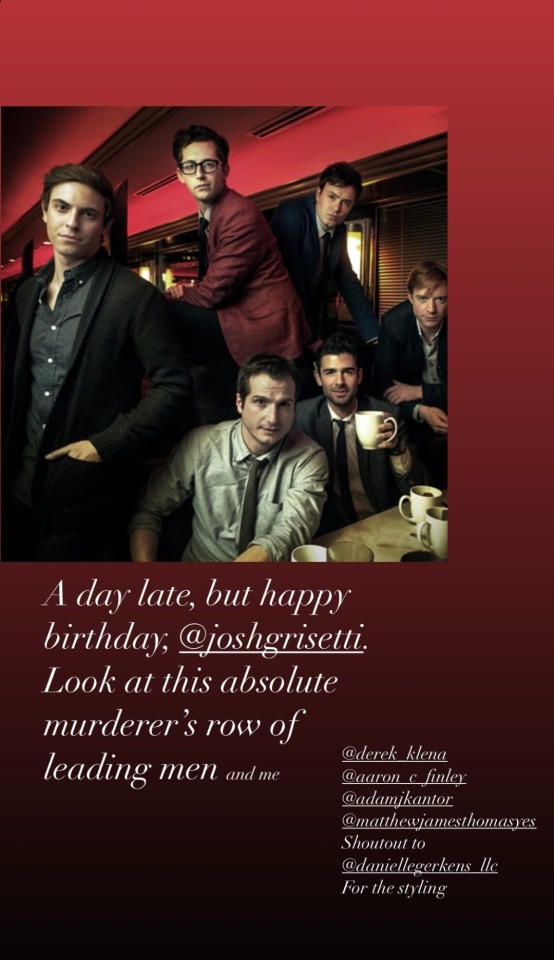
Bryan Fenkart's Instagram Story (December 2, 2024)
#derek klena#bryan fenkart#matthew j thomas#adam kantor#josh grisetti#aaron c finley#diner#diner cast#diner the musical#social media#photos#instagram
0 notes
Text

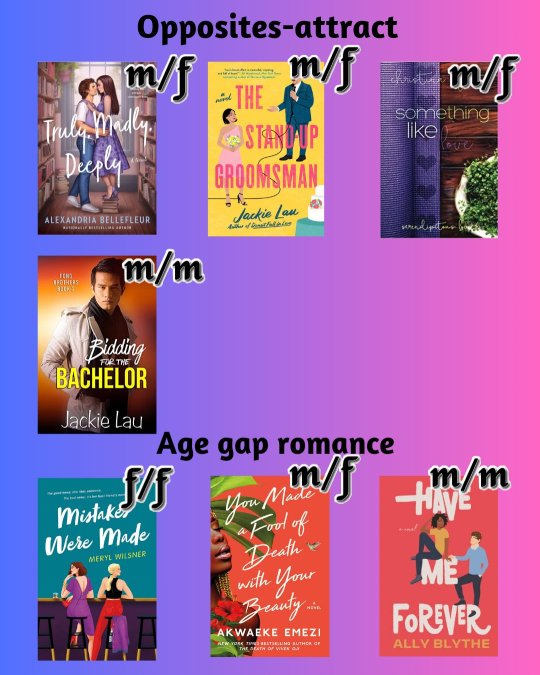

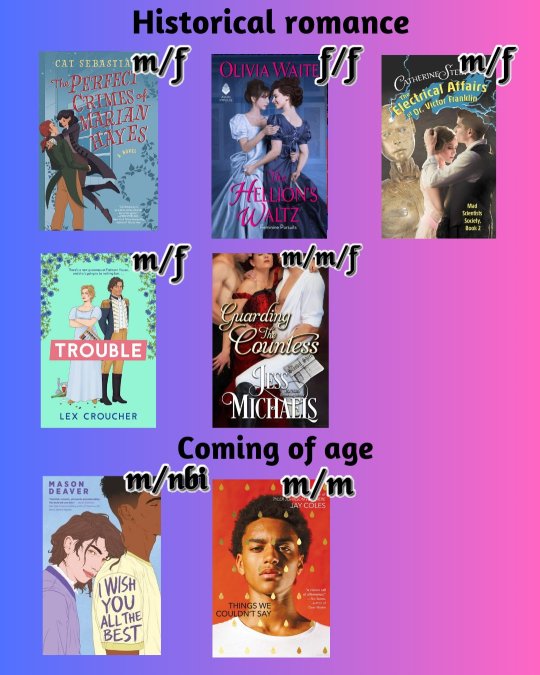
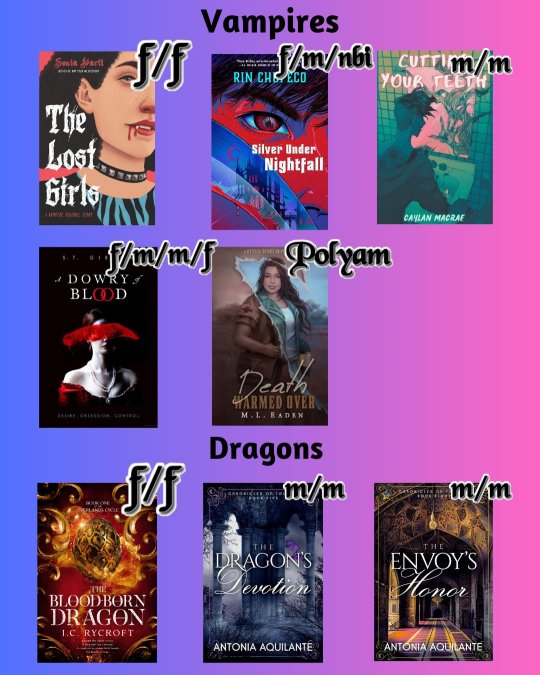
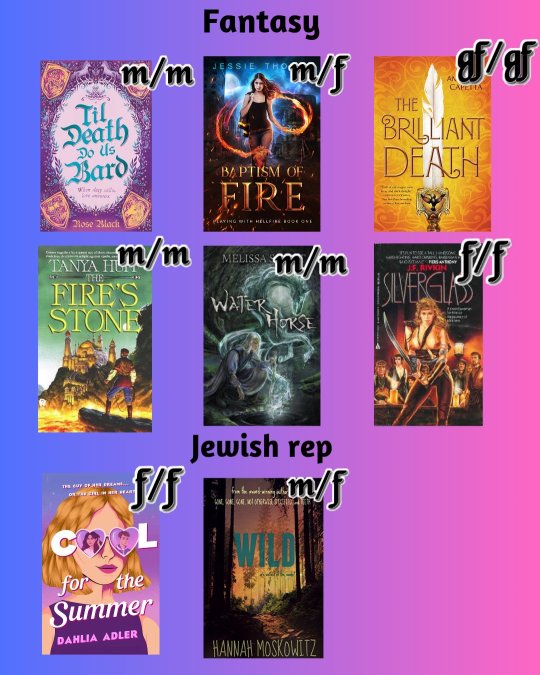
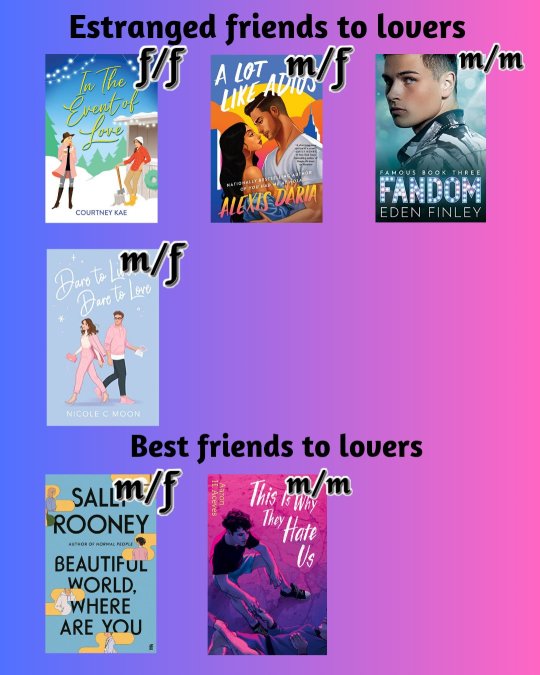
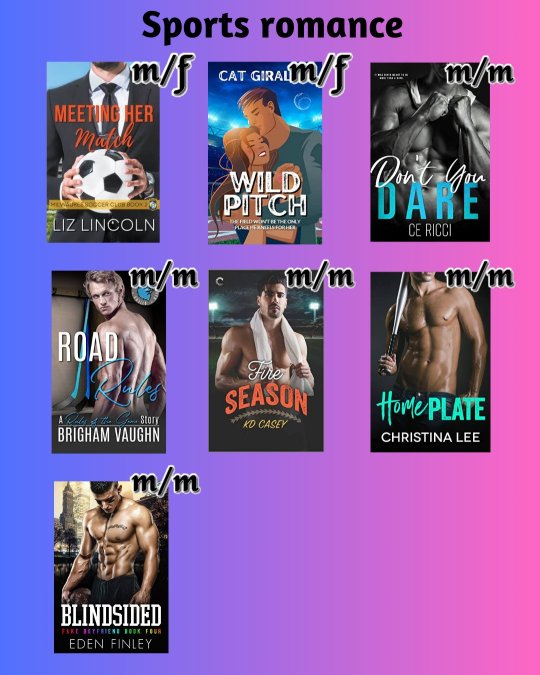
Here is the part 2 of my bi4bi books posts!
Books listed
Truly Madly Deeply by Alexandria Bellefleur The Stand-Up Groomsman by Jackie Lau Something Like Love by Christina C. Jones Bidding for the Bachelor by Jackie Lau Mistakes Were Made by Meryl Wilsner You Made a Fool of Death with Your Beauty by Akwaeke Emezi Have Me Forever by Ally Blythe Everyone's Thinking It by Aleema Omotoni Heat Wave by Elyse Springer An Act of Devotion by A.M. Leibowitz Passion Over Power by Karmen Lee Party Favors by Erin McLellan Winning Move by Skye Kilaen False Notes & Broken Frets by Elle Bennett Leah on the Offbeat by Becky Albertalli Off the Record by Camryn Garrett The Perfect Crimes of Marian Hayes by Cat Sebastian The Hellion's Waltz by Olivia Waiter The Electrical Affairs of Dr. Victor Franklin by Catherine Stein Trouble by Lex Croucher Guarding the Countess by Jess Michaels I Wish You All the Best by Mason Deaver Things We Couldn't Say by Jay Coles The Lost Girls by Sonia Hartl Silver Under Nightfall by Rin Chupeco Cutting Your Teeth by Caylan MacRae A Dowry of Blood by S.T. Gibson Death Warmed Over by M.L. Eaden The Blood-Born Dragon by J.C. Rycroft The Dragon’s Devotion by Antonia Aquilante The Envoy’s Honor by Antonia Aquilante Til Death Do Us Bard by Rose Black Baptism of Fire by Jessie Thomas The Brilliant Death by Amy Rose Capetta The Fire's Stone by Tanya Huff Water Horse by Melissa Scott Silverglass, No. 1 by J.F. Rivkin Cool for the Summer by Dahlia Adler Wild by Hannah Moskowitz In The Event of Love by Courtney Kae A Lot Like Adiós by Alexis Daria Fandom by Eden Finley Dare to Live, Dare to Love by Nicole C. Moon Beautiful World, Where Are You by Sally Rooney This Is Why They Hate Us by Aaron H. Aceves Meeting Her Match by Liz Lincoln Wild Pitch by Cat Giraldo Don't You Dare by C.E. Ricci Road Rules by Brigham Vaughn Fire Season by K.D. Casey Home Plate by Christina Lee Blindsided by Eden Finley
#bisexual#bisexual representation#bisexual pride#bi books#bisexual books#sapphic books#achillean books#booklr#book blog#queer books#lgbt books#lgbtq books#bi4bi#bi4bi books#bisexual romance#bookblr#book tumblr#Bi rep#bi romance#Bi representation#Bisexual rep#Bisexual visibility day#Bi visibility day#Bisexual visibility month#My posts
169 notes
·
View notes